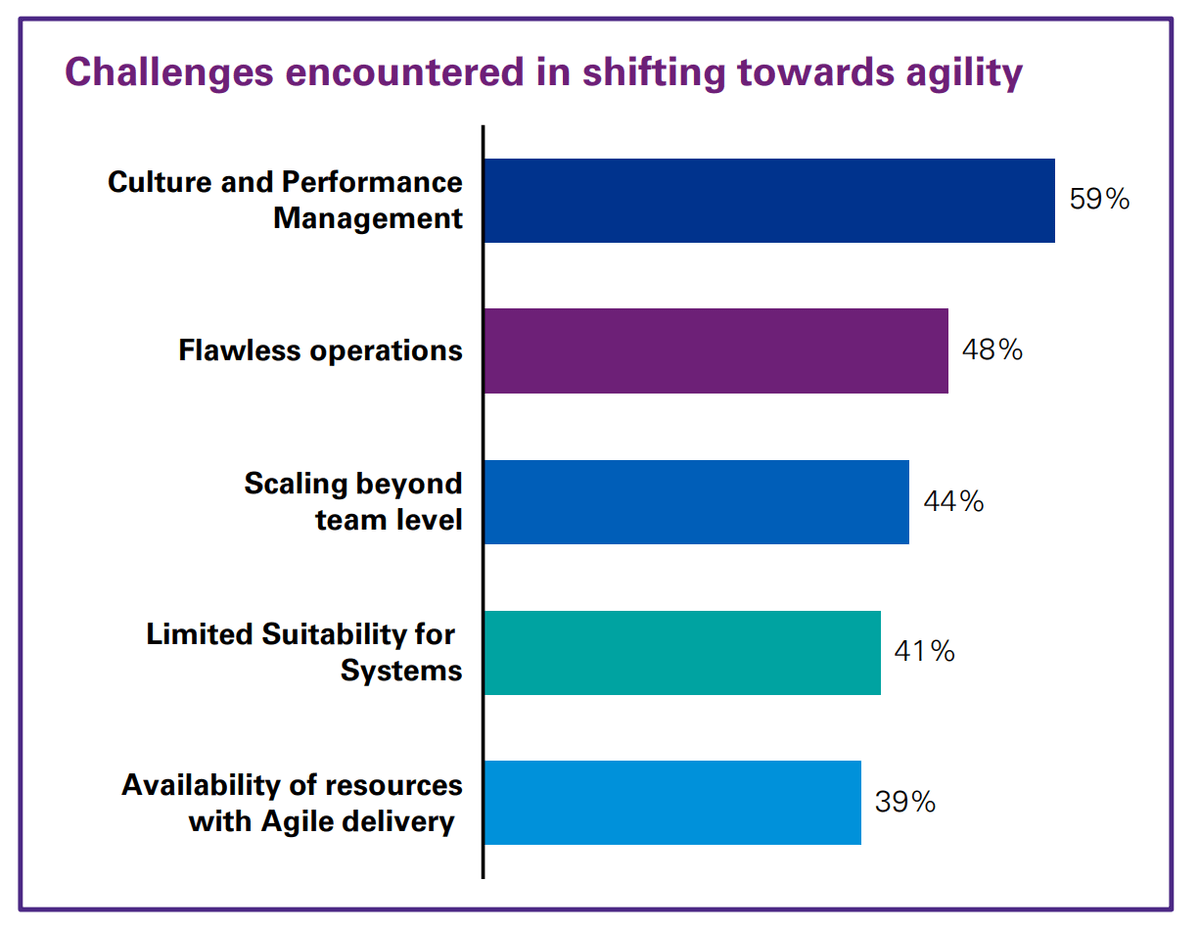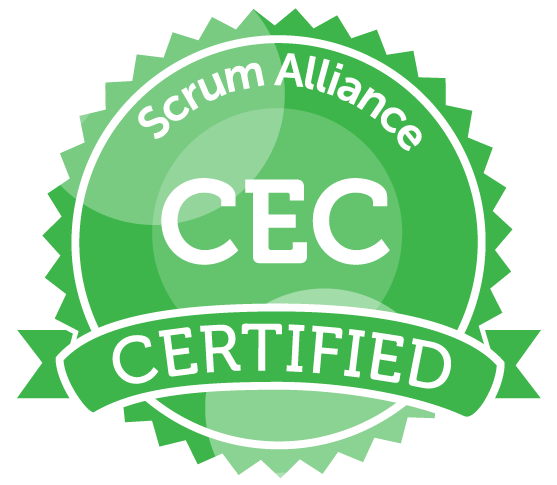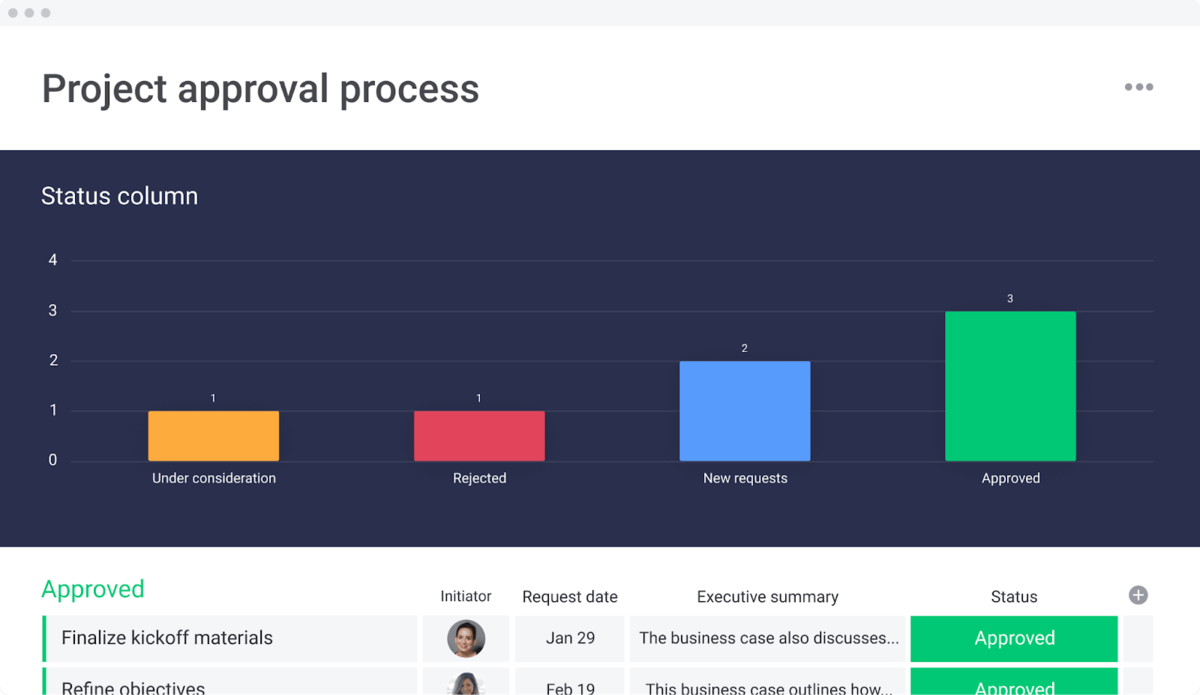Transitions to Agile are all the rage these days, with 70% of companies planning to move not just IT, but also other business functions, to more Agile approaches by 2022.
But changing an entire company’s culture and way of working isn’t easy.
Enter the Agile coach — a third-party expert who’ll help your company create a unique process and workflow that works for you.
In this article, we’ll explain precisely what an Agile coach is, how they get certified, whether your company needs one, and more.
What is an Agile coach?
An Agile coach is someone who teaches, creates, and improves Agile processes within a team or a company. You can bring them in as a consultant or hire them for a full-time position.
Most companies hire Agile coaches to smooth out an Agile transition, either for a department, project team, or the entire organization.
They can help you quickly learn and adopt crucial Agile workflows, principles, and ways of thinking.
But, if you’re not yet an Agile convert, you might be wondering what an Agile coach spends their days actually doing.
Responsibilities: what does an Agile coach do all day?
An Agile coach works to not just spread Agile throughout your company but to ensure that every team effectively works together in the new environment.
To the untrained eye, an Agile coach might seem like a mumbo-jumbo role without a lot of concrete daily tasks, but that’s not the case.
An Agile coach’s responsibilities include a wide variety of tasks, including:
- Spreading Agile best practices between different teams
- Arranging and leading workshops to speed up adoption of Agile work practices
- Ensuring that you set up an effective Agile workflow and environment
- Integrating Agile teams within non-Agile processes
- Measuring the results of your company’s transition to the Agile methodology
Their job is to help your company overcome all challenges in transitioning to Agile.
And if you’ve ever tried to manifest company-wide change, you know that it’s not going to be easy.
All companies struggle to let go of even their most outdated software and processes. Now imagine changing the entire way everyone works.
Most companies face a number of different issues.
According to KPMG, the most common ones are culture and performance management, flawless operations, and scaling beyond team level.

Issues with culture and performance management is another way of saying “we’re stuck in our ways.”
The Agile coach is the outside influence your team needs to make lasting change. They can shock the system in the right way, so you can reboot and update your approaches.
Agile coach vs. Scrum Master: how are they different?
The job of an Agile coach is usually to facilitate a transition to Agile throughout the whole organization. A Scrum Master is part of a Scrum team and facilitates them to deliver projects according to the Scrum methodology.
So the first and most obvious difference is scale. An Agile coach can influence a whole company with 100s of employees.
A Scrum Master is usually only part of 1–3 small teams of 3–9 people.
The second difference is their roles and goals. An Agile coach will teach and adapt Agile practices and processes to multiple teams and/or management.
The Scrum Master doesn’t just teach Scrum practices but actively guides a specific project as well.
But of course, there’s some overlap. In-depth knowledge of Agile principles, ideas, and working practices is a must for both.
Some Agile coaching certifications require previous experience as a Scrum Master. If the company plans to set up a Scrum team, it obviously helps to have an intimate knowledge of how that works.
How are Agile coaches certified?
The main certifications for Agile coaches are offered by Scrum Alliance and International Consortium for Agile (ICAgile).
Scrum Alliance Certified Enterprise Coach and Certified Team Coach
Scrum Alliance offers 2 different types of certifications for Agile coaches: 1 for enterprise-focused coaches and 1 for team-focused coaches.
The CEC (Certified Enterprise Coach) certification is most in line with the traditional definition of an Agile coach — someone a company hires to lead a company-wide agile transformation process.

The CTC (Certified Team Coach) instead fulfills a similar role to a Scrum Master — acting as the go-to for Agile practices within one or more teams.
ICAgile Agile Coaching (ICP-ACC)
ICAgile also offers a training and certification program for Agile coaches. The ICP-ACC is the main course and certification option on their Agile coaching track.
To get certified, you need to take a 3-day course from an accredited training provider. There are many options in a variety of different countries and languages. You can even take the course remotely.
ICAgile also offers another certification for becoming an “Agile team facilitator.” While not required, they do recommend that you take that course before ICP-ACC.
Agile coach requirements
The CEC requirements are strict and include items like: “having coached at enterprise/organizational level or a combination of enterprise and multi-team level coaching for more than 2,000 hours in the past 3 years, not counting time as a ScrumMaster.”
Other certifications, like ICP-ACC, just require you to finish the training course and pass the test at the end. In the case of ICP-ACC, that’s around 21 hours of learning spread out over 3 days.
Of course, if you have no experience outside the course, you’ll have a hard time getting hired to manage a large-scale Agile transformation.
What to look for in an Agile coach beyond certification
When you’re looking for an Agile coach for your organization, just finding someone who’s certified isn’t enough. You must also consider relevant industry experience, their alignment with your company culture, and more.Even if it’s a temporary position, you should treat it as you would if hiring someone permanently.
Relevant industry experience
The first thing to consider is whether they’ve helped any similar companies before. Relevant industry experience can speed up the process and avoid having to create a lot of systems from scratch.
Of course, every company has unique workflows and processes, but there’s always some overlap.
Experience coaching a transition of similar scale
There’s a big difference between an Agile coach who only leads team transitions and a specialized enterprise Agile coach.
While the underlying philosophy is the same, the approaches and focus areas are not. Make sure you find someone who can handle your scale, whether massive or small and intimate.
Coach-organization fit
An Agile coach is still a coach, after all. Their whole job is to come into your company and change the people within it.
So before you hire someone, you need to ask yourself a crucial question:
Do they have the right personality to become a lynchpin for change in your company?
Don’t hire a jokester if you know that’s going to rub most people the wrong way.
Don’t hire someone dry and professional if your newly Agile team won’t relate to them.
Don’t hire an aggressive coach straight out of a football movie if you know it won’t go down well.
You can only make this judgment based on your own experience working for the company.
Experience as a Scrum Master (if you’re adopting Scrum)
If you’re planning to use the Scrum framework, it helps if your Agile coach has experience working with Scrum. Ideally, as a Scrum Master or product owner.
That way, they can help you structure projects, breaking them down into logical Scrum teams.
If you don’t care about the framework, only results, then it doesn’t matter as much. But it’s definitely not a bad thing to spot on a resume.
Make the Agile transition easier with monday.com
Whether you hire an Agile coach or not, having the right framework for doing and managing work is crucial if you’re going to transition to a less traditional management approach.
Agile teams will manage themselves more, with less direct oversight. But with the right system in place, managers and executives can get an even better overview of how projects are going.
With monday.com, teams can easily self-report and keep track of their own work, making it easy for upper management to track project progress.
Here are 4 ways monday.com can help with your Agile transformation:
Real-time dashboards and project data
On individual project boards, your teams can assign or take on deliverables and activities themselves — depending on your approach.
With set deadlines or datelines, you can easily compare expected performance to reality.
You can also see a breakdown of status across entire projects in real-time dashboards. For example, if it’s in an initial phase, you can see how the early ideation process is going.

With access to this data, even the most hands-on manager will feel better about letting go of the reins.
Micro-management is unnecessary when you have a dashboard like this at your fingertips.
Build out projects with Agile artifacts like roadmaps, product backlogs, and Kanban boards
We offer customizable templates for common Agile artifacts and tools like roadmaps and product backlogs.
These documents are crucial to the workflow of any Agile team. A roadmap outlines the high-level vision and long-term direction of the project.
A product backlog includes all the features your team, executives, and stakeholders have singled out the final product needs.
All the crucial columns and components are in the templates already, so you hit the ground running. You can later adapt them to your team’s unique workflow and needs.
The default monday.com board is a grid view, but we also offer a Kanban view option. So if your teams prefer Kanban, they can easily turn it into a Kanban board.
Use automation to keep everyone in the loop
With our smart automation builder, you can easily set up automations that guarantee a smooth workflow.
For example, you can automatically alert a senior developer when a status changes to “stuck” or “ready for review.”
These automations are all the more powerful because of monday.com’s 40+ native integrations with other platforms and apps.
Destroy data silos with robust native integrations
Do different teams do most of their work in different online tools? The answer is probably yes. Often, customer service, sales, marketing, and development all have their own preferred platforms.
With monday.com’s integrations, you can create a cohesive experience to destroy silos. For example, you can integrate customer service’s Zendesk, the dev team’s Jira, and more.
Plus, we’ve released a full-powered low-code framework to help you easily integrate internal systems using our API.
Don’t just hire an Agile coach and hope for the best
For an Agile transition to succeed, there must be buy-in from every level of the organization.
That means meeting with not just executives, but convincing every team and employee that it’s a worthwhile undertaking.
A great platform for implementing that change is a digital workspace like monday.com. With our advanced project management template, you can easily create boards and workflows that help teams become more Agile and manage themselves better.
